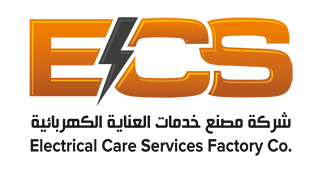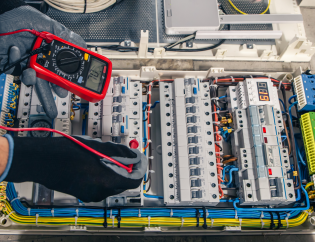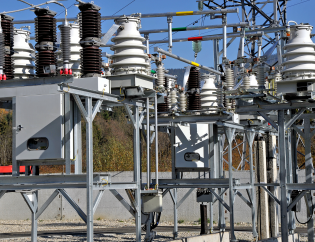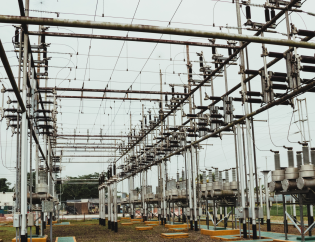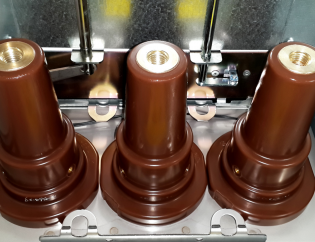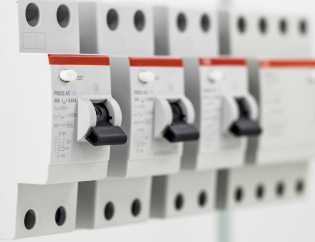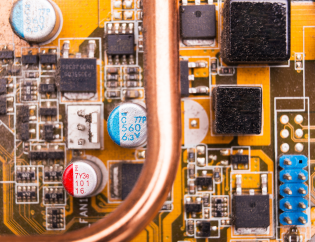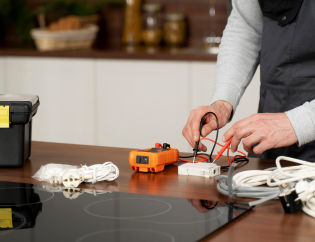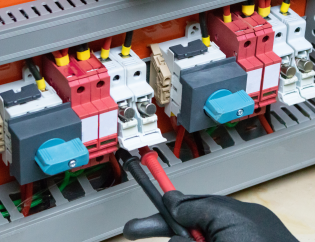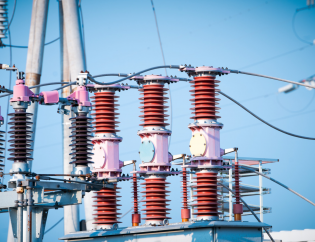Components of an Electrical Control Panel
Various components make up an electrical control panel. Let’s discuss each of these components in detail.
Circuit Breakers
One of the essential components of an electrical control panel is the circuit breaker. Circuit breakers protect the electrical system from overloads and short circuits by interrupting current flow. When an electrical circuit experiences an overload or short circuit, the circuit breaker trips, shutting off the power supply to that circuit. This protects the electrical system from damage and ensures that the system continues to operate safely.
Relays
Another critical component of an electrical control panel is the relay. Relays are used to switch high voltage or high current devices with a low voltage or low current signal. They are used to control the flow of electricity and to protect sensitive electrical components from damage.
Switches
Switches are another essential component of an electrical control panel. They are used to turn electrical components on or off manually. Various types of switches are used in electrical control panels, including push-button switches, toggle switches, and rocker switches.
Timers
Timers are another crucial component of an electrical control panel. They are used to control the duration of an electrical operation. For example, a timer can be used to control the length of time a motor runs or the course of a heating cycle.
Controllers
Controllers are another essential component of an electrical control panel. They are used to control and monitor the operation of the electrical system. Controllers can be used to monitor and adjust system parameters such as temperature, pressure, and flow rate.
Why You Need an Electrical Control Panel
There are several reasons why you need an electrical control panel. Let’s discuss each of these reasons in detail.
Safety
Safety is one of the primary reasons you need an electrical control panel. Electrical control panels provide safety features such as emergency stop buttons and warning lights that alert operators to potential problems. They also help prevent electrical shock and fire hazards by ensuring the electrical system operates within safe parameters.
Efficiency
Another reason why you need an electrical control panel is efficiency. Electrical control panels allow operators to quickly and easily monitor and adjust the system, which helps optimize the system’s performance and ensure that it operates at peak efficiency. This can help to reduce energy consumption and prolong the life of the electrical components, resulting in significant cost savings over time.
Applications of Electrical Control Panels
Electrical control panels are used in various industrial and commercial applications. Let’s discuss some of the most common applications of electrical control panels.
Manufacturing Plants
In manufacturing plants, electrical control panels are used to manage and control the operation of machines and equipment. They are responsible for controlling the motors, sensors, and other electrical components of the machines and ensuring that they operate safely and efficiently. This can include controlling the speed, torque, and direction of the machines.
Hospitals
In hospitals, electrical control panels are used to manage the operation of critical systems such as the HVAC system, elevators, and emergency power supply systems. Electrical control panels are also used to control lighting and other electrical systems in the hospital.
Data Centers
In data centers, electrical control panels are used to manage and control the operation of servers and other critical equipment. They are responsible for maintaining the temperature, humidity, and other environmental factors to ensure that the servers operate efficiently.
Commercial Buildings
In commercial buildings, electrical control panels are used to manage and control the operation of HVAC systems, lighting, and other electrical systems. They are responsible for controlling the temperature and ensuring that the building operates efficiently.
Design and Installation of Electrical Control Panels
Designing and installing an electrical control panel requires careful planning and attention to detail. The first step in designing an electrical control panel is to determine the electrical requirements of the system. This includes identifying the voltage, current, and power requirements of each electrical component.
Once the electrical requirements have been determined, the next step is to select the appropriate electrical components, such as circuit breakers, relays, and switches. The electrical components should be selected based on their compatibility with the electrical system and their ability to meet the electrical requirements.
After selecting the electrical components, the next step is to design the electrical layout of the control panel. The electrical layout should be designed to ensure that the electrical components are organized and arranged logically and efficiently. This will help to minimize the risk of electrical shorts and other electrical problems.
Once the electrical layout has been designed, the next step is to install the electrical components into the control panel. A qualified electrician should perform the installation to ensure the electrical system is installed correctly and operates safely.
Do you Need a Custom Electric Control Panel?
In some cases, a standard electrical control panel may not meet the specific needs of an industrial or commercial electrical system. In these situations, a custom electrical control panel may be required.
A custom electrical control panel is designed and built to meet the specific electrical requirements of the system. This includes selecting the appropriate electrical components, creating the electrical layout, and installing the electrical system.
There are several reasons why a custom electrical control panel may be required. For example, the electrical system may have unique requirements that cannot be met with a standard control panel. Or, the electrical system may have space limitations that require a custom control panel to be designed to fit in a specific location.
Another reason for requiring a custom electrical control panel is to improve the safety and efficiency of the electrical system. A custom control panel can include additional safety features, such as emergency stop buttons, warning lights, and alarms, to ensure the electrical system operates safely and efficiently.
Ready to simplify the management and maintenance of your electrical system? Look no further than ECSKSA’s top-quality electrical control panels.
Conclusion
In conclusion, an electrical control panel is essential to any industrial or commercial electrical system. It provides safety features, improves system efficiency, and simplifies the management and maintenance of the electrical system. Electrical control panels are used in various applications, including manufacturing plants, hospitals, data centers, and commercial buildings. Designing and installing an electrical control panel requires careful planning and attention to detail to ensure the electrical system operates safely and efficiently.
If you need assistance with designing and installing an electrical control panel, please don’t hesitate to contact us. Our team of qualified electricians at ECSKSA is available to answer any questions and provide a customized solution that meets your unique electrical needs. Contact us today to schedule a consultation!
Do you have a question in your mind? If so, make sure to fill out the form below!
